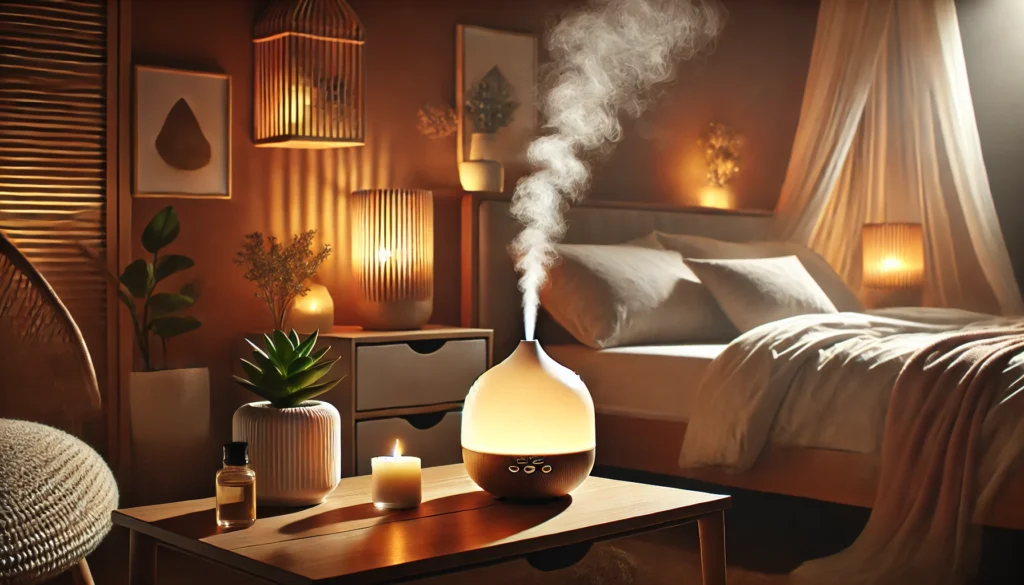Sleep is a vital part of our lives. It’s a time when our bodies rest, rejuvenate, and prepare for the next day.
But for many, a good night’s sleep is elusive. It’s often disrupted by stress, lifestyle habits, or a lack of a consistent night routine.
This is where a night routine list comes into play. A well-crafted routine can signal to your body that it’s time to wind down and prepare for sleep.
In this article, we’ll delve into the science of sleep and the importance of a night routine. We’ll explore how certain activities and habits can enhance your sleep quality.
We’ll provide a comprehensive night routine list, incorporating the latest research and trends. This list will offer practical advice that you can easily implement.
Whether you’re a health and wellness coach, a science journalist, or a biohacker, this article is for you. It’s designed to be informative, engaging, and accessible.
So, let’s embark on this journey towards better sleep. After all, a good night’s sleep is the foundation of a healthy and productive life.
You may also like: Essential Daily Habits for a Productive Life
Understanding the Importance of a Night Routine
A consistent night routine is more than just a set of evening activities. It is a crucial part of maintaining your body’s natural sleep cycle. By adhering to a routine, you can train your body to recognize when it’s time to sleep.
These routines help regulate your circadian rhythm, which is your body’s internal clock. This 24-hour cycle dictates important bodily functions, including sleep-wake patterns. When your circadian rhythm is in sync, you fall asleep easily and wake up refreshed.
Night routines can improve your overall health. They do this by reducing stress and promoting relaxation before bedtime. A relaxed mind and body make it easier to drift into quality sleep.
Here are some simple elements to include in your nightly routine:
- Dimming lights and reducing screen time
- Engaging in relaxation techniques like meditation
- Creating a comfortable sleep environment
- Preparing for the next day with light planning
- Incorporating gentle stretching or yoga
Each component works together to create an ideal atmosphere for sleep. This holistic approach addresses both physical and mental preparation. Thus, a consistent night routine contributes significantly to better sleep and improved well-being.
The Science of Sleep and Circadian Rhythms
Understanding the science behind sleep can enhance your night routine. At the core of sleep science is the circadian rhythm, an intricate timing system. This rhythm signals your body to wake or rest based on natural light cues.
Daylight influences the release of hormones like cortisol and melatonin. Cortisol keeps you alert in the morning, while melatonin promotes sleepiness at night. A disrupted rhythm can lead to poor sleep quality.
Thus, aligning your bedtime routine with these natural cycles can significantly improve your sleep. Engaging in calming activities can help align and maintain your circadian rhythm.
How a Night Routine Can Enhance Sleep Quality
A well-planned night routine can directly impact your sleep quality. By creating consistent signals for bedtime, you teach your body to expect rest at a certain time. This consistency promotes more restorative sleep.
Avoiding stimulating activities and electronics an hour before bed can aid this transition. Blue light from screens can confuse your body’s sleep signals. Replacing screen time with relaxing activities like reading or listening to music helps set the stage for sleep.
Incorporating relaxation techniques, such as meditation, further enhances sleep quality. These practices calm both mind and body, easing the transition into peaceful rest. Ultimately, the right nighttime habits can make a world of difference in how well you sleep.
Crafting Your Ideal Night Routine List
Creating a night routine list tailored to your lifestyle and preferences can be highly rewarding. Start by evaluating your evening habits. Identify what currently helps or hinders your sleep.
Your list should include elements that promote relaxation and sleep readiness. This might involve experimenting with different activities. Customize your list by choosing what feels comfortable and effective for you.
Consider mixing calming activities such as a warm bath or light reading. These can signal your body that it’s time to wind down. Over time, adjust your routine based on how well you sleep.
The key is consistency. A regular routine helps train your body to anticipate sleep. This not only improves the quality of your rest but also enhances your overall well-being.
Dimming Lights and Reducing Blue Light Exposure
Light plays a critical role in your body’s sleep cycle. Dimming lights as the evening progresses can aid the production of melatonin. This hormone helps regulate sleep.
Blue light from screens can disrupt this natural process. It tricks your body into thinking it’s still daylight. Reducing screen time an hour before bed allows natural sleep signals to take over.
Consider using warm, dim lighting in your evening environment. This atmosphere supports a natural transition into a restful state. By managing light exposure, you take control of one of the simplest yet most effective sleep strategies.

Relaxation Techniques: Meditation and Deep Breathing
Integrating relaxation techniques into your night routine can significantly ease sleep. Meditation helps declutter the mind and reduce stress. Even a short session can bring profound relaxation.
Deep breathing, on the other hand, calms the nervous system. It encourages a state of relaxation necessary for sleep. Focused, slow breaths signal your body to transition from activity to rest.
Experiment with both methods to see which resonates most with you. These techniques not only prepare you for sleep but also reduce anxiety and promote a peaceful mindset.
Preparing for Tomorrow: Journaling and Planning
Before sleep, take a few minutes to prepare for the next day. Journaling can offload worries or thoughts that might otherwise linger. It reduces mental clutter by placing your thoughts on paper.
Planning your next day helps clear a busy mind and provide direction. Jot down important tasks and appointments. This practice not only organizes your thoughts but also allows you to enter sleep with a calm mind.
Cultivating this habit helps reduce nightly anxiety. It fosters peace of mind and eases the transition from awake to asleep. Thus, journaling and planning become vital components of a restful night routine.
Creating a Comfortable Sleep Environment
A conducive sleep environment is essential for quality rest. Ensure your bedroom is tailored for comfort and relaxation. Elements like mattress quality and bedding can significantly affect sleep.
Maintain a cool, dark room to enhance sleep onset. Blackout curtains or sleep masks can block out unwanted light. A quiet space or white noise can further minimize disruptions.
Personalize your environment with soothing colors and decor that promote peace. The right setting nurtures a serene atmosphere that encourages deep, uninterrupted sleep.
Evening Yoga and Stretching Routines
Gentle yoga or stretching routines can be invaluable in your night routine list. These practices help release physical tension built up during the day. They also promote flexibility and relaxation.
Incorporate postures like child’s pose or seated forward bends. These positions are calming and encourage a state of restfulness. Focus on slow, controlled movements and deep breaths.
Regular evening stretching can improve sleep quality. It creates a seamless transition into rest by calming both mind and body. This nightly ritual prepares you for a more restorative sleep experience.
The Role of Warm Baths and Showers
Taking a warm bath or shower is a time-tested way to prepare for sleep. The heat increases your body temperature. As you step out, your body cools down, signaling it’s time for rest.
This temperature change cues your body to release sleep hormones. The process relaxes muscles and eases tension. Warm water naturally soothes and calms the mind.
Incorporate soothing scents like lavender or chamomile for added relaxation. Such rituals enhance the calming effects of your night routine, readying you for a night of peaceful slumber.
Advanced Sleep Strategies
For those seeking to optimize their sleep further, advanced strategies can provide additional benefits. These techniques involve experimenting with supplements, aromatherapy, and diet alterations. Each element has its unique way of enhancing rest.
Sleep-promoting supplements, such as melatonin or magnesium, can aid in falling asleep faster. They work by naturally supporting the body’s sleep processes. However, it’s crucial to consult with a healthcare provider before starting any new supplements.
Aromatherapy using essential oils like lavender can create a soothing environment. Inhaling calming scents helps lower stress levels, making it easier to drift off. Essential oils can be diffused in the air or applied topically for greater effect.
Diet and exercise significantly impact sleep quality. Consuming a balanced diet and maintaining regular exercise habits can improve sleep cycles. Aim to eat lighter meals in the evening and avoid caffeinated drinks close to bedtime.
Sleep-Promoting Supplements and Teas
Supplements and herbal teas offer a natural way to enhance sleep quality. Melatonin is one of the most popular options, supporting the body’s circadian rhythm. It is especially useful for those with irregular sleep schedules.
Magnesium, another effective supplement, relaxes muscles and calms the mind. It contributes to overall well-being and reduces stress-induced sleep disturbances. Valerian root is also well-regarded for its mild sedative effects.
Herbal teas like chamomile or peppermint can be part of a soothing evening ritual. These teas promote relaxation without caffeine’s stimulating effects, signaling the body that bedtime is near. Always start with low doses and be mindful of individual reactions.
Aromatherapy and Essential Oils for Sleep
Aromatherapy using essential oils can transform your sleep environment. Lavender is widely acclaimed for its calming effects, often associated with improved sleep quality. Its aroma helps relax the mind and body.
Chamomile and sandalwood oils are also beneficial. These scents promote tranquility and ease anxiety, fostering a more restful state. Diffuse these oils in your bedroom to create a serene atmosphere.
Essential oils can also be part of a bedtime skincare routine. Applying diluted oils to pulse points or using in a bath can enhance their effect. This practice integrates seamlessly into an evening routine, enhancing relaxation and sleep readiness.

The Impact of Diet and Exercise on Sleep
The foods you consume and your activity level significantly affect sleep patterns. A diet rich in whole foods supports healthier sleep cycles. Focus on fruits, vegetables, lean proteins, and whole grains.
Avoid large meals and heavy foods close to bedtime. These can disrupt sleep and cause discomfort. Similarly, limit caffeine and alcohol intake in the hours before sleep.
Exercise, particularly earlier in the day, boosts sleep quality and duration. It helps regulate the body’s energy levels and reduces stress. Moderate daily physical activity enhances restful sleep and overall health.
Digital Detox: Unplugging for Better Rest
In our digital age, a digital detox is crucial for optimal sleep. Reducing screen time before bed decreases blue light exposure. This change allows natural melatonin production to flourish.
Unplugging from devices an hour before bedtime lets the mind relax. It minimizes over-stimulation and reduces pre-sleep anxiety. Use this time for calming activities, such as reading or meditation.
Consider a “power down” hour where all electronics are off and your focus shifts to unwinding. This practice helps create a barrier between the busy day and the restful night. A digital detox fosters an environment conducive to deep, uninterrupted sleep.
Personalizing Your Night Routine
A personalized night routine aligns with individual needs, enhancing its effectiveness. Embrace flexibility and adapt your routine to your unique lifestyle and preferences. Recognize that a successful routine isn’t one-size-fits-all.
Consider your daily schedule and personal energy levels. Some may benefit from longer wind-down periods, while others need a quick, focused routine. Evaluate what helps you transition smoothly from activity to rest.
Incorporate elements that bring personal joy and relaxation. Whether it’s reading, meditating, or light stretching, choose activities that calm your mind. This personalization elevates your routine’s impact on sleep quality.
It’s also beneficial to monitor how different routines affect your rest. Small adjustments can lead to significant improvements in the quality of your sleep. By tailoring your routine, you create a powerful tool for better health and well-being.
Adjusting Your Routine to Fit Your Lifestyle
Your lifestyle plays a pivotal role in shaping an effective night routine. Adjusting it allows for better alignment with your daily commitments. Understandably, consistency within flexible parameters is key.
Work schedules and personal obligations may dictate your routine’s structure. For instance, night-shift workers might start their routine earlier in the evening. Aligning your routine with your schedule helps maintain regular sleep patterns.
Additionally, consider seasonal changes and lifestyle shifts. Adaptations to your routine keep it relevant and effective year-round. By adjusting your approach, you maintain a harmonious balance between life’s demands and restful sleep.
Monitoring and Adapting with Sleep Tracking
Sleep tracking devices and apps provide valuable insights into your sleep habits. They offer detailed data on sleep duration, efficiency, and disruptions. Monitoring this information can help identify areas for improvement.
Using this data, tweak your night routine for better results. For example, track the impact of new bedtime activities or dietary changes. Adjustments based on real-world feedback encourage continuous improvement in sleep quality.
Regularly reviewing sleep trends helps you adapt swiftly to changes. Whether it’s stress, dietary influences, or environmental factors, stay responsive. Adaptability is crucial for sustaining the long-term benefits of a personalized night routine.
Addressing Sleep Disorders and Seeking Help
Persistent sleep issues may indicate underlying sleep disorders. Conditions like insomnia or sleep apnea require professional diagnosis and treatment. A well-tuned routine can support managing these challenges but isn’t a substitute for medical care.
Consult a healthcare professional if sleep problems persist. They offer tailored advice and treatments that address specific conditions. Professional guidance ensures that routines complement medical interventions.
Moreover, integrate sleep education into your routine. Understanding sleep disorders and their management empowers proactive self-care. Continuous learning and professional consultation work hand-in-hand to enhance sleep health.
Conclusion: Embracing the Power of a Night Routine
A night routine is much more than a series of tasks; it is an investment in your overall well-being. By dedicating time to unwind each evening, you nurture your body and mind. This conscious approach to rest enhances sleep quality and daytime functioning.
The benefits of a well-crafted night routine extend beyond just falling asleep faster. It helps regulate your circadian rhythm, improve mood, and boost productivity the next day. A consistent routine can transform your nights from restless to restorative.
Crafting a personalized routine allows you to incorporate activities that resonate with your lifestyle. This makes it easier to adhere to the routine, fostering a sense of control over your sleep health. Each step you take toward a better night routine builds a foundation for longer-term health benefits.
As you commit to this journey, remember the progress won’t always be linear. Be patient and flexible, allowing room for adjustments. Embrace each small step toward better sleep, knowing it contributes to the larger picture of enhanced health and vitality.
The Long-Term Benefits of a Consistent Night Routine
Establishing a nightly routine can greatly improve your sleep health over time. Consistency helps synchronize your body’s internal clock, resulting in more restful slumber. This can lead to improved physical well-being and emotional stability.
As your sleep quality improves, you may notice enhanced cognitive functions. Memory, focus, and overall mental performance often benefit from regular, restorative sleep. These gains amplify your ability to tackle daily challenges effectively.
Moreover, consistent sleep patterns can aid in preventing chronic health issues. A robust night routine supports cardiovascular health, boosts immunity, and regulates weight. This holistic approach to wellness empowers you to sustain a healthier lifestyle.
Encouraging a Community of Good Sleepers
Imagine a world where the benefits of restful sleep extend beyond the individual to the community. Good sleep practices can become contagious, sparking a collective focus on health and wellness. By sharing your experiences, you inspire others to prioritize their rest.
Forming a community of good sleepers fosters mutual support and accountability. Sharing tips, struggles, and successes helps everyone refine their routines and overcome obstacles. This network creates a positive environment where wellness flourishes.
Encouraging good sleep practices can also enhance relationships. Well-rested individuals often have improved mood and energy, which can strengthen interpersonal bonds. Promoting sleep health within your community enriches both personal and social interactions.

Final Thoughts and Encouragement to Begin Tonight
Embarking on a journey toward better sleep is a rewarding endeavor. Start by integrating small changes, gradually building a routine that suits you. Each step you take signifies progress toward improved sleep health.
Don’t wait for the perfect moment; begin shaping your night routine tonight. Embrace the transformative power of consistent rest, knowing it supports your long-term well-being. Your future self will thank you for the commitment made today.
Further Reading:
How I End My Day | A Full Evening Routine Checklist
The Everygirl’s Guide to Building a Morning and Nighttime Routine That Works
23 Evening Routine Habits and Ideas to Perfectly End Your Day
Important Note: The information contained in this article is for general informational purposes only, and should not be construed as health or medical advice, nor is it intended to diagnose, prevent, treat, or cure any disease or health condition. Before embarking on any diet, fitness regimen, or program of nutritional supplementation, it is advisable to consult your healthcare professional in order to determine its safety and probable efficacy in terms of your individual state of health.
Regarding Nutritional Supplements Or Other Non-Prescription Health Products: If any nutritional supplements or other non-prescription health products are mentioned in the foregoing article, any claims or statements made about them have not been evaluated by the U.S. Food and Drug Administration, and such nutritional supplements or other health products are not intended to diagnose, treat, cure, or prevent any disease.


